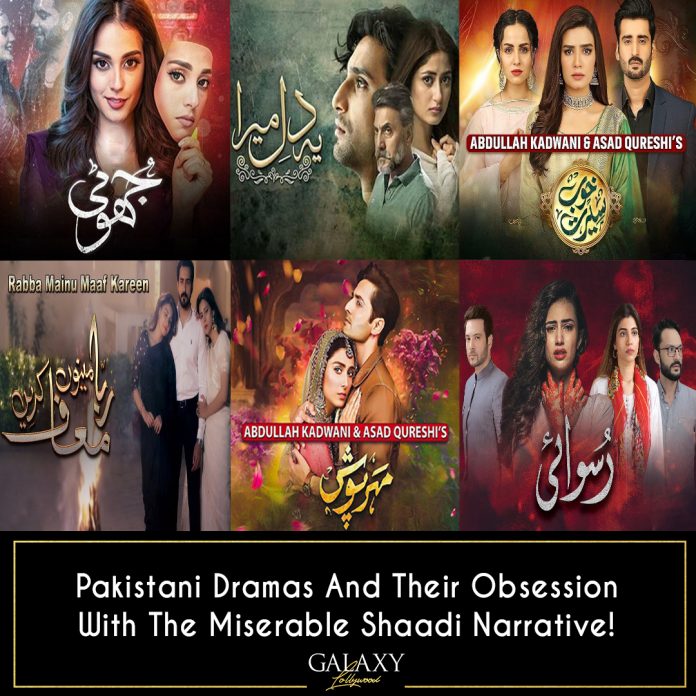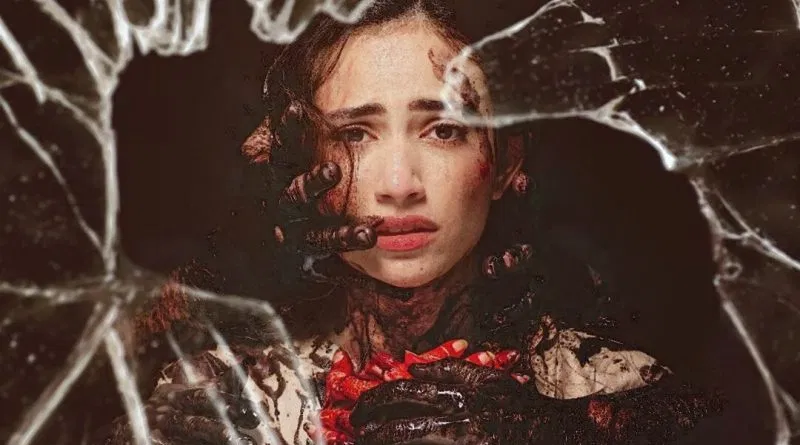One of my earliest memories related to television programming is about a PTV drama called Zaib-un-Nissa. I don’t remember much about the drama, just very vague bits and pieces, but I very distinctly remember enthusiastically discussing it with my friends in our school’s playground during recess time. There was a scene in the drama where Zaib-un-Nissa (played by Nida Kazmi) stands up to her husband Mehmood (played by Adnan Siddiqui) after a confrontation. He called her by her pet name “Zaibi” and she corrected him with a firm voice, “Mera naam Zaib-un-Nissa hai.”
There was something so powerful about that scene that it stayed with me for a very long time. I was too young to fully grasp the implications of the scene i.e. a woman asserting her identity by no longer allowing her own self to be something that others dictate. And when I had forgotten about it enough to want to revisit it, I looked up the show and realized that Zaib-un-Nissa was a drama about a woman who was in an abusive marriage.
The finale of the drama showed Zaib-un-Nissa walking out of her marriage to have the chance of discovering herself. There was no mention of divorce; just the wife telling her husband that he had scarred her so emotionally that she needs time to heal her wounds. And she would do that on her own without his presence reminding her of the ugly side of their marriage. The question of Zaib-un-Nissa ever coming back to Mehmood was left up to imagination; the show ends on a powerful note.
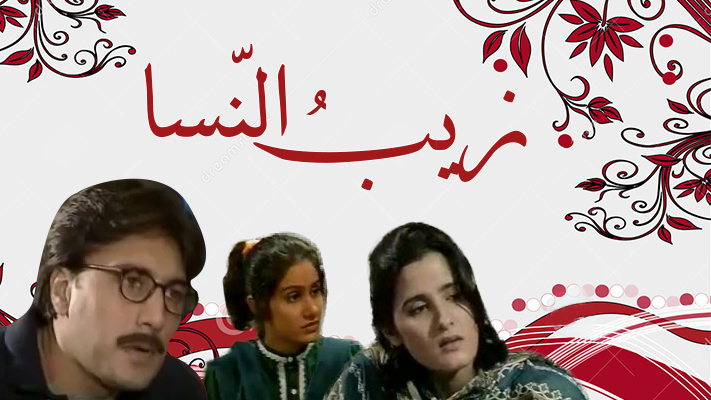 The dramas nowadays
The dramas nowadays
Two decades later, the narrative around marriage in our dramas have completely changed. There is no Zaib-un-Nissa to be found amidst all the female protagonists on television that cry a bucket of tears on average in every episode. Apart from the tears what binds all these female protagonists together is the fact that they are all married.
In the Pakistani dramas of the current times, marriage is the beginning of utmost misery which provides no way out of it. You only marry once (unless it is a man then he marries twice and his entire arc in the drama is to balance between his two wives) and regardless of how horrible that experience turns out for you, you diligently stick with it till the end.
The female character’s identity is based entirely on her married life. For instance, look at GeoTV’s latest offering Meherposh. We are introduced to the protagonist’s character as being a beloved daughter of a family who is also employed in a well-paying and respected job. But just two episodes in and tragedy has befallen her as her husband divorced her on her wedding night thanks to him thinking she has “questionable” character. There’s no point for guessing how the rest of the drama will shape up now. Hint: it involves misery and much rona dhona.
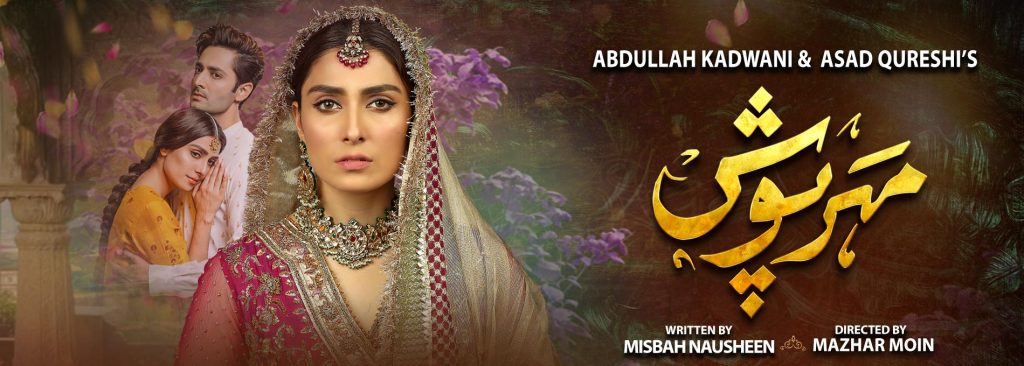 Another of Geo TV’s offering is Khoobseerat which is just a never-ending saga of the protagonist Dilkush making the most stupid decisions in the name of being a devoted wife.
Another of Geo TV’s offering is Khoobseerat which is just a never-ending saga of the protagonist Dilkush making the most stupid decisions in the name of being a devoted wife.
Then there’s the masterpiece of a drama called Thoda Sa Haq airing on ARY Digital which I interpret as a man wanting to be in bed with his two wives (at the same time?) but the world around him not allowing him to do that. Hence, all the angst.
No stories beyond marriage
Even in dramas that are not seeped in the typical rona dhona they use marriage as a ploy for bringing misery to the female character. Yeh Dil Mera on HumTV is not a typical drama with its mystery and psychological elements. But even that drama did not spare the idea of marriage being used as a setup for misery. Amaan marries Aina to take revenge from her father Mir Farooq for killing Amaan’s parents years ago. There’s a reason why the drama’s original title was rumored to be Mujhe Vida Kar.
The general idea that Pakistani dramas give out is that there is no life or identity of a woman in Pakistan beyond her marriage. Even the dramas revolving around serious issues like a gang-rape survivor ultimately end up becoming a saas-bahu saga. Yes, Ruswai I’m looking at you. Just using the last episode to get Sameera justice does not erase the many episodes when the drama was about everything but that.
Ironically, despite all the importance that Pakistani dramas put on marriages, the representation around marriage makes it seem like the most fickle thing in the world. Forget the sanctity and the importance of consent, which is needed to marry once and needed even more when a man wants to go for a second marriage, and with how normalized dramas have made the idea of ending marriages. Characters get married in the night and before the sun has risen the divorce has taken place. Who can ever take the idea of marriage seriously after watching that?
A reset needed
There’s no denying the importance of marriage in Pakistani society. However, much nuance and deliberation is needed to portray the complexities of an average married life. If Pakistani dramas cannot let go of their obsession with marriages being the central plot for all their stories, the least they can do is make the situations more believable.
There’s rarely any random neighborhood girl eyeing a married man with three kids and scheming to end his marriage of ten years (Rabba Mainu Maaf Kare) or a young woman succeeding to fool two entire families to get married to a man just to rob him off of lacs in the name of haq meher (Jhooti). Or husbands claiming to love their wives fully and yet wasting no time in accusing them of infidelity just because someone said so (literally every other drama on television airing right now)
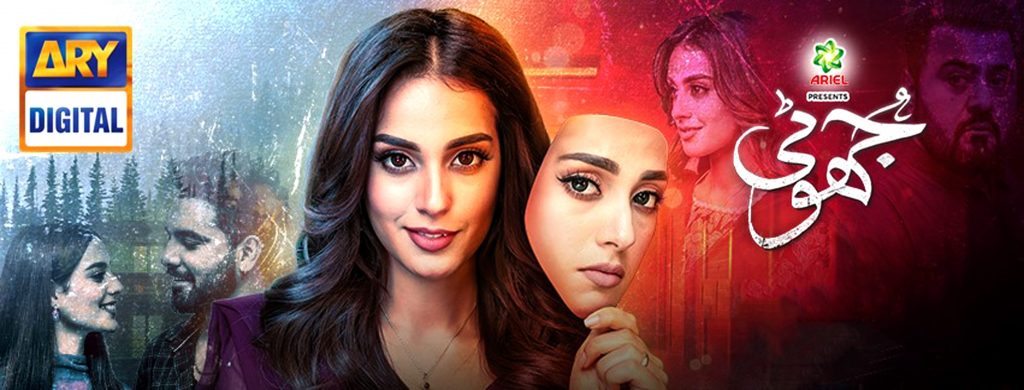 Television has a way of altering reality with the way it enforces certain ideas repeatedly. And if one ends up consuming the altered reality without thinking it through properly, there’s no denying that it could end up becoming the truth. And that is a very dangerous thing. As Amma wisely said, our dramas are normalizing all the dangerous topics and ideas to a shocking extent. And it will end up having a drastic effect in the long run.
Television has a way of altering reality with the way it enforces certain ideas repeatedly. And if one ends up consuming the altered reality without thinking it through properly, there’s no denying that it could end up becoming the truth. And that is a very dangerous thing. As Amma wisely said, our dramas are normalizing all the dangerous topics and ideas to a shocking extent. And it will end up having a drastic effect in the long run.
I was lucky enough to have watched Zaib-un-Nissa which left a deeply positive impression on me when I was growing up. I just can’t help but worry about the countless other young girls growing up with the Pakistani dramas of today who have no such narrative to prove that yes, there is a life and identity beyond a miserable marriage. When the pandemic is over and the world survives, I wonder if anyone will take the responsibility for not giving these young girls uplifting and positive stories to look forward to a healthy future relationship?

